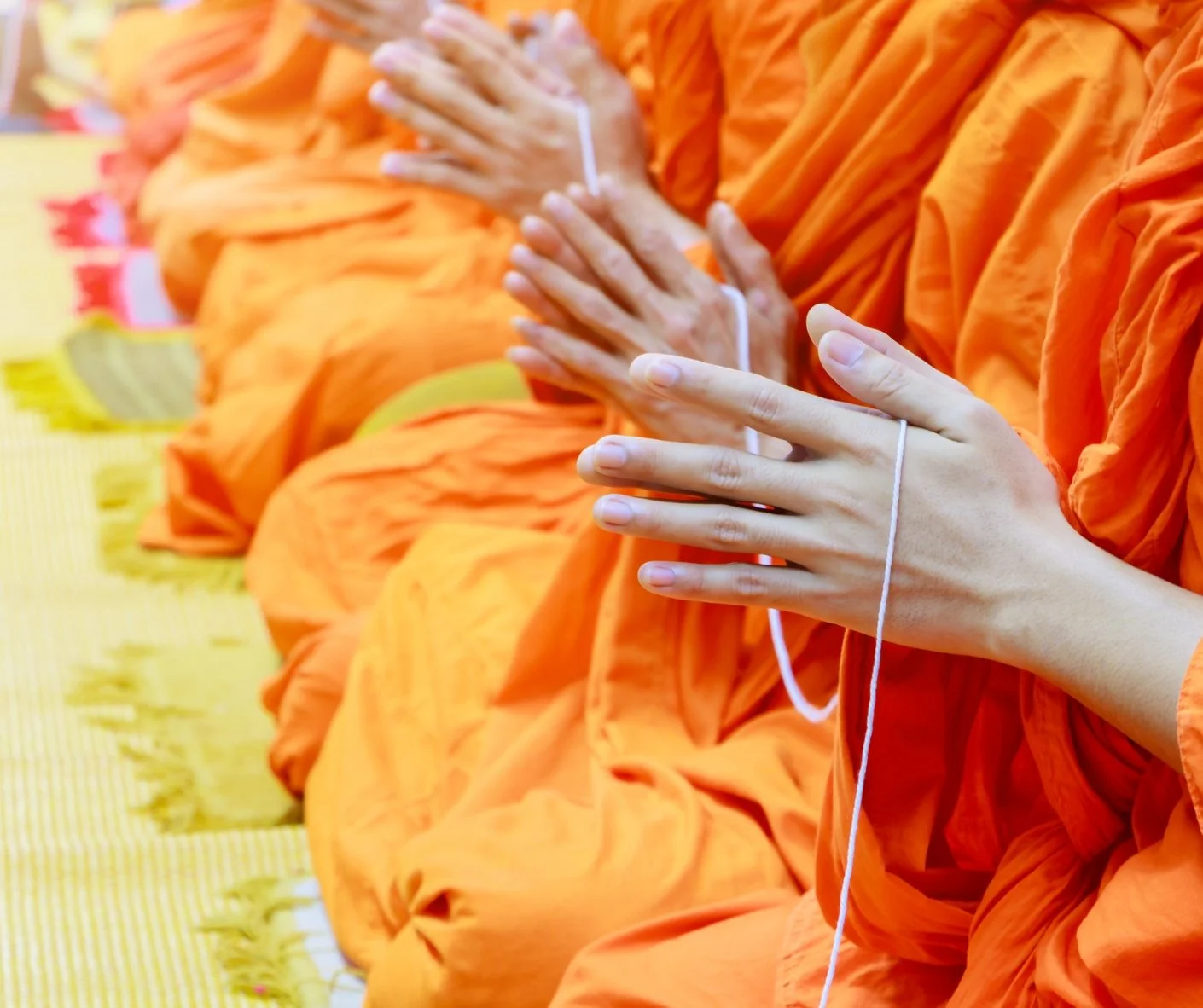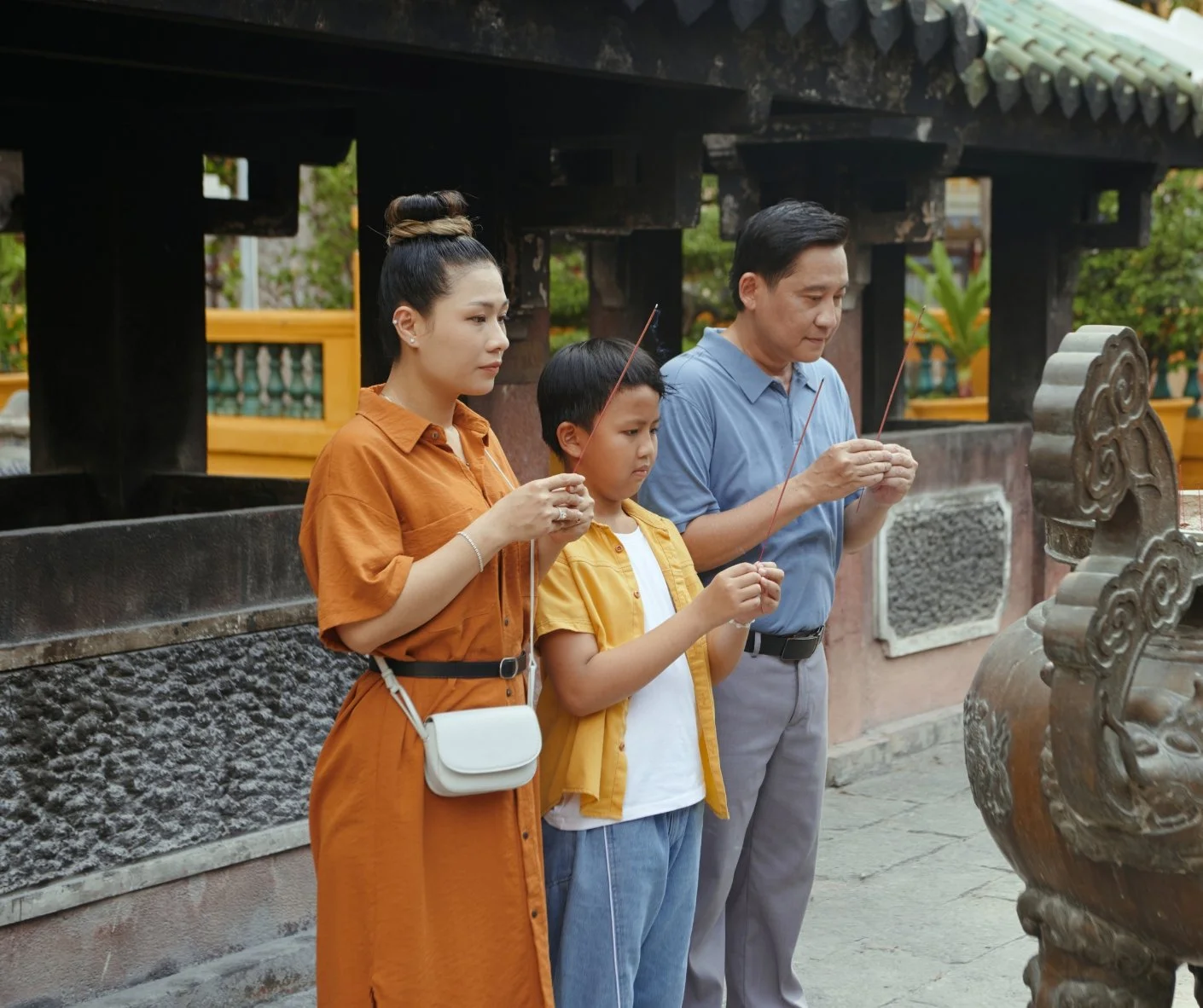8 Funeral Etiquettes To Follow For Buddhist Funerals In Singapore
Buddhist monks praying and chanting
If you have been invited to a Buddhist funeral service in Singapore, you may feel unsure about what to do or how to behave. Buddhist funerals are deeply meaningful and guided by long-standing traditions focused on honouring the deceased with dignity and compassion.
This article will walk you through the essential funeral customs and etiquette so you can pay your respects sincerely and offer comfort to the grieving family.
What To Do When Attending a Buddhist Funeral in Singapore?
1. Dress Appropriately for the Occasion
When attending a Buddhist funeral, choose modest and respectful clothing. Stick to black, white, grey, or neutral colours, and avoid anything too bright or revealing.
Slippers and shorts are generally acceptable in Singapore, but make sure you still look neat, tidy, and presentable to honour the grieving family.
2. Prepare Condolence Money (白金 / “Bai Jin”)
White envelope used to contain condolences money
It is customary to bring condolence money in a white envelope when attending a Buddhist funeral. Most guests give between SGD $50 to $150, depending on their relationship with the deceased or the family. Offering condolence money is a meaningful way to show care and provide practical support to the family during their time of loss.
3. Pay Your Respects at the Altar
Proper position to offer joss sticks and prayers towards a buddhist altar
Upon arrival, take a moment to approach the altar to honour the deceased. You may offer joss sticks, or bow with palms pressed together as a sign of respect.
If you are not Buddhist, a simple bow, moment of silence, or quiet prayer is perfectly acceptable. The important thing is to be sincere and respectful.
4. Maintain a Quiet and Respectful Atmosphere
A Buddhist funeral is a solemn occasion. Avoid loud conversations, laughter, or anything that may disrupt the ceremony.
Your presence should help create a peaceful environment, allowing the family to grieve, reflect, and send off their loved one with dignity.
5. Participate in Rituals (If You Feel Comfortable)
There may be chanting, prayer sessions, or guidance from ritual leaders. Follow basic cues on when to stand, sit, or offer incense.
Participation is appreciated, but not compulsory. If you are not Buddhist or prefer not to join, simply remain quiet and respectful throughout.
6. Sending a Flower Wreath (Optional)
It is common to send a funeral flower wreath to the wake venue as a gesture of comfort and support. While optional, this gesture can help express sympathy and offer emotional strength to the grieving family.
7. Cleanse Yourself With Blessed Water
Before leaving the wake, you may notice a pail or cup of blessed water near the entrance. This water is believed to help remove negative energy. Simply dip your fingers, sprinkle a little on your hands, and cleanse yourself before heading home.
8. Use the Red String Handed Out at the Funeral
Visitors are often given a red string (红包线) when they arrive or before they leave. This is a symbolic gesture of appreciation from the family.
Coil the string around one of your fingers and discard it once you have left the venue. It is believed to help ward off bad luck after attending a funeral.
Why Engage Funeral Home Team For Buddhist Funeral In Singapore?
Engaging Funeral Home Team for a Buddhist funeral in Singapore ensures the entire process is carried out smoothly, respectfully, and in accordance with Buddhist customs. Our experienced team understands the specific rites, chanting sequences, altar arrangements, and cultural nuances across different dialect groups, ensuring every detail is handled with accuracy and care.
We coordinate all logistics, from wake setup and monk arrangements to transport, cremation bookings, and administrative paperwork so families can avoid unnecessary stress during a difficult time. Beyond logistics, we provide emotional guidance, explain daily rituals, and support the family throughout the wake.
Conclusion
Buddhist funeral etiquette in Singapore revolves around respect, simplicity, and compassion. By dressing modestly, preparing condolence money, observing altar rituals, and following the guidance of ritual leaders, you help uphold the customs of a Buddhist farewell. Keeping these practices in mind ensures that you attend the funeral in a respectful, culturally appropriate, and supportive manner.
Contact us for more information.
Related Topics
Here are some related articles that you may like:


